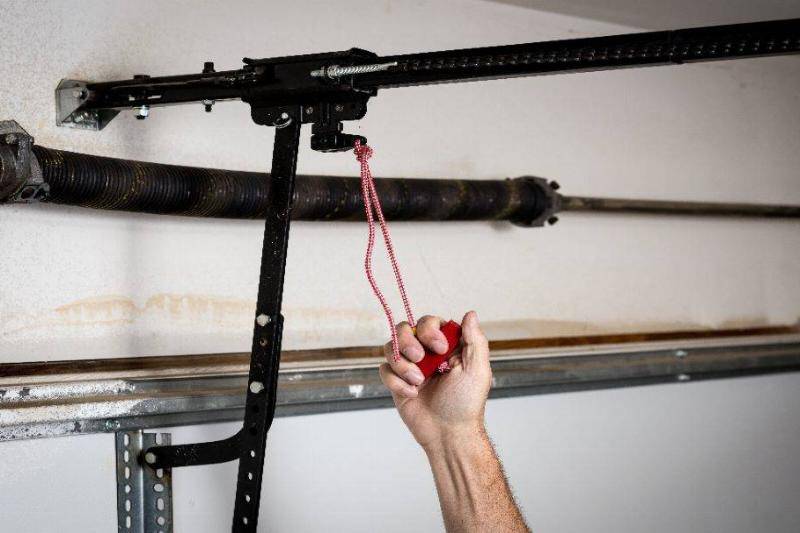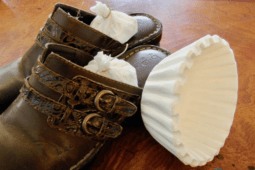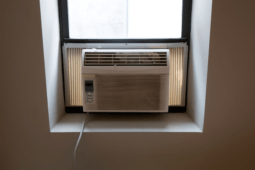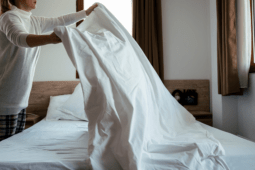Easy and Affordable Security Hacks to Protect Your Home
In the United States, a burglary occurs every 15 seconds. Many of these incidents happen in broad daylight, and sometimes even when residents are home. Fortunately, protecting your home doesn’t have to involve a costly security system. With a little creativity, some DIY efforts, and a few affordable purchases, you can fortify your home and gain peace of mind.
From locking windows to strategically placing deterrents, there are numerous effective ways to boost security. Read on to discover simple, budget-friendly hacks that can make your home a less attractive target for burglars.
Get Creative With Your Spare Key Hiding Spot
Traditional hiding spots for spare keys, like under the doormat or a flower pot, are the first places burglars check. Instead, opt for more unconventional hiding places. Fake rocks, sprinkler heads, or magnetic boxes that attach to your car are all clever alternatives.
You could also hand the spare key to a trusted neighbor or conceal it in an unexpected location, such as nailed to a tree. These creative options ensure your spare key remains accessible to you but hidden from potential intruders.
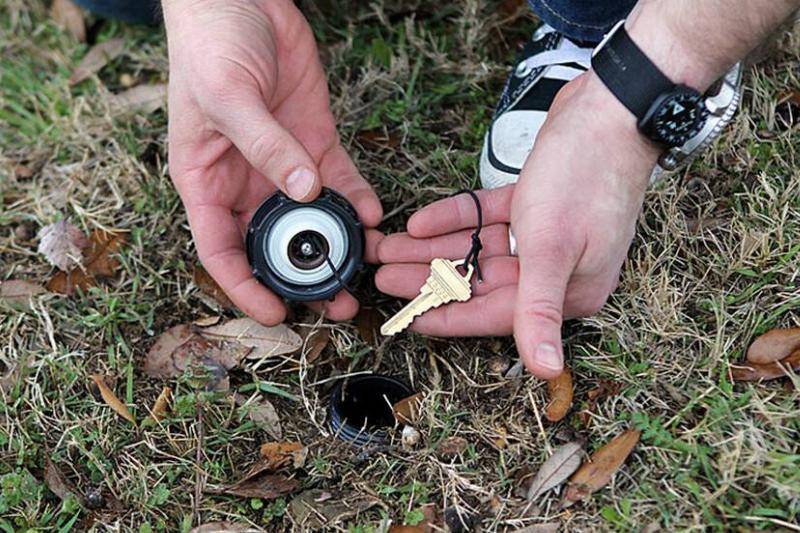
Make Your Own Window Pin Locks
Double-hung windows without locks are a common vulnerability, but creating pin locks is a simple and cost-effective solution. Drill a hole where the sliding window meets the sash, ensuring it aligns perfectly. Insert a metal pin through the hole to secure the moving part of the window to the frame, preventing it from being opened.
The materials for this project are inexpensive, with pin locks costing around $5 online. The process is quick, taking just a few minutes, and it significantly enhances your home’s security without requiring specialized tools.
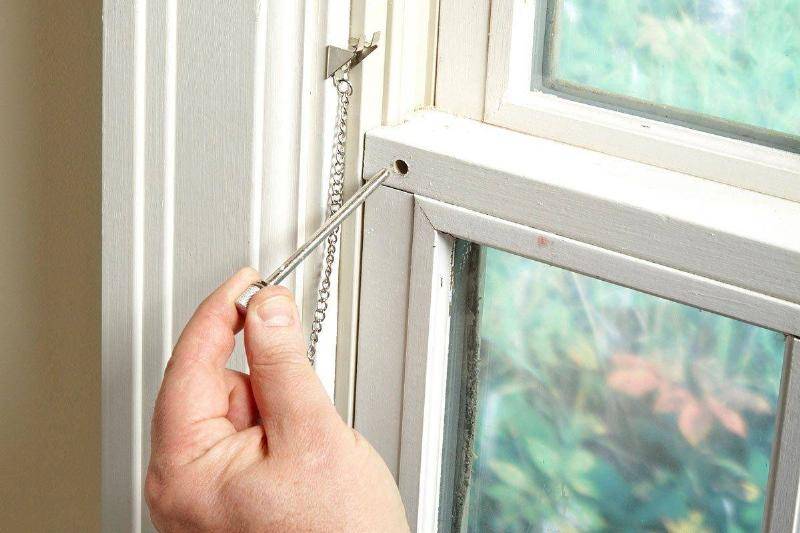
Lock The Doors, Even When You’re At Home
An alarming number of burglaries happen simply because doors are left unlocked. Even when you’re at home, it’s essential to lock all doors and windows. Making this a habit reduces the likelihood of an intruder gaining easy access to your home.
Most burglaries (72%) occur when the homeowner is away, but a significant portion happens because entry points were unsecured. Regularly checking locks, especially before bedtime, adds a layer of safety and peace of mind.
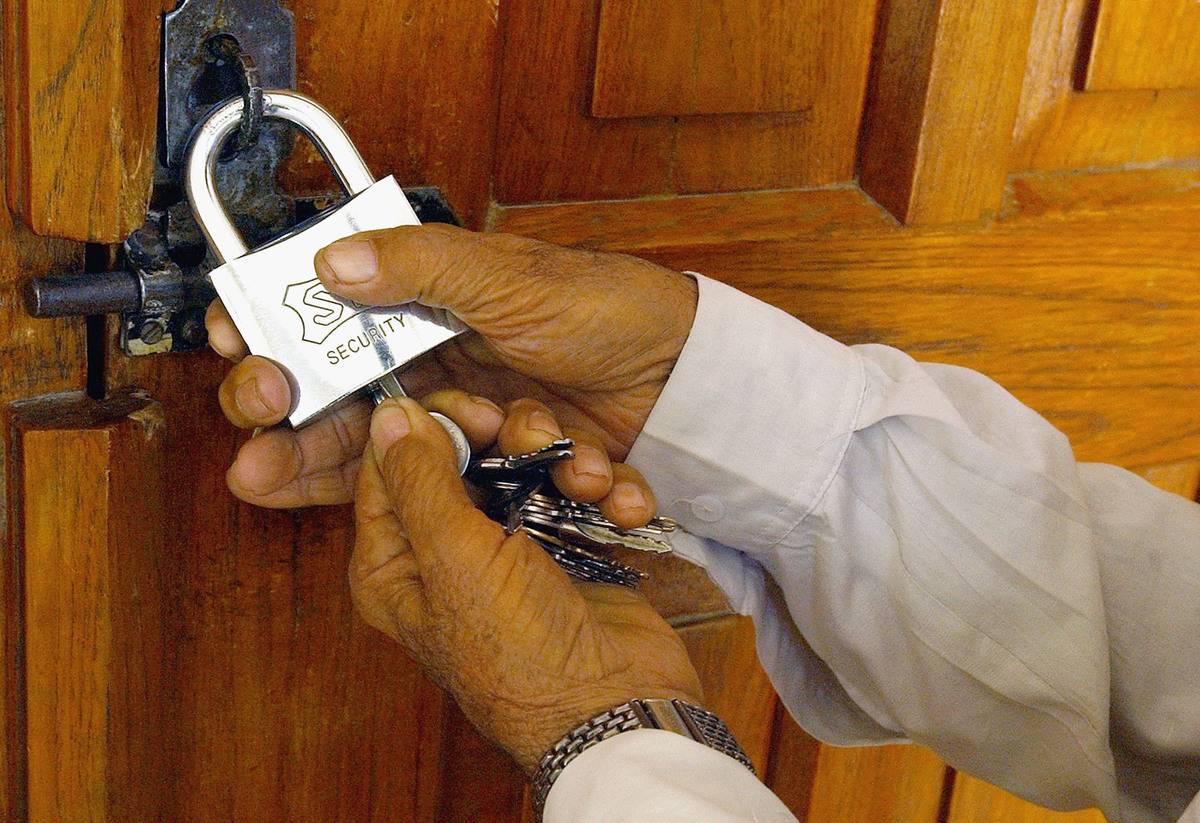
Put Up a Fake Home Security Sign
A security sign is an easy and inexpensive way to deter burglars. Even if you don’t have a security system, a sign indicating otherwise can make criminals think twice. Most burglars prefer not to risk being caught and will target homes without any visible security measures.
You can purchase fake security signs online for just a few dollars. Phrases like “Protected by Electronic Alarm System” or “24/7 Surveillance in Progress” are effective at making your home seem more secure than it is.
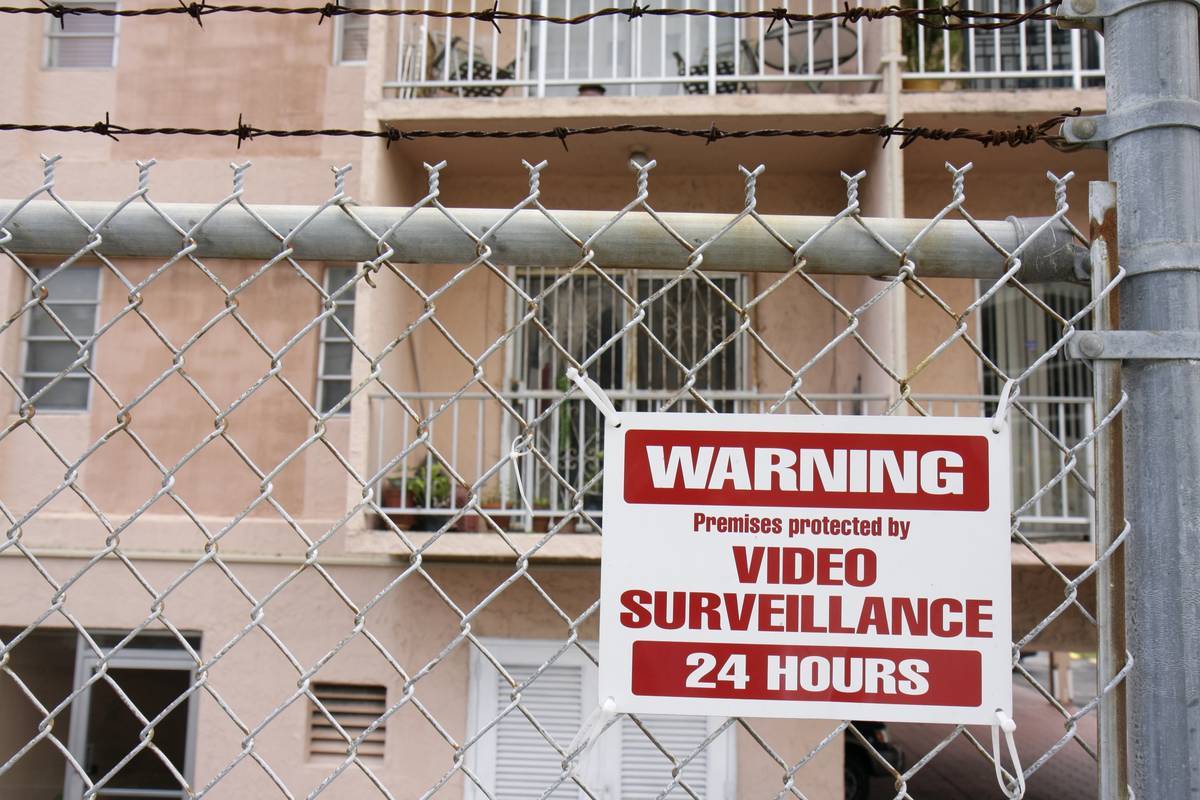
Invest in Indoor Security Cameras
Indoor security cameras are an excellent way to monitor activity inside your home. Modern models are affordable, costing around $100 each, and offer wireless connectivity for easy installation. Place cameras in high-traffic areas such as entryways, living rooms, and hallways to capture the most activity.
To maintain privacy, avoid placing cameras in sensitive areas like bedrooms or bathrooms. Some cameras also feature motion detection and remote monitoring, providing an added layer of security when you’re away.
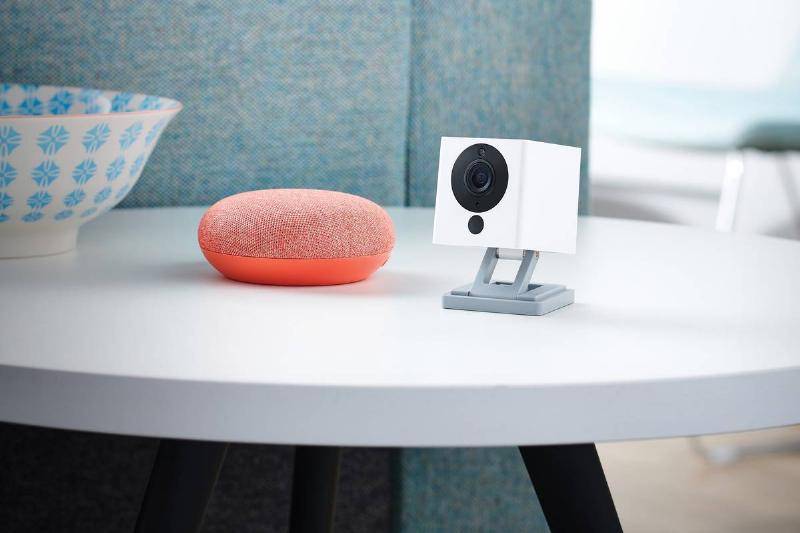
Or Purchase Outdoor Security Cameras
Outdoor cameras are ideal for monitoring your home’s exterior and detecting potential threats before they reach entry points. These weatherproof devices are slightly more expensive, averaging around $200, but they are highly effective at catching suspicious activity.
Position outdoor cameras to cover doors, windows, and pathways. Look for models with long battery life and night vision to ensure consistent monitoring. Many wireless options are easy to set up and connect to your phone for real-time alerts.
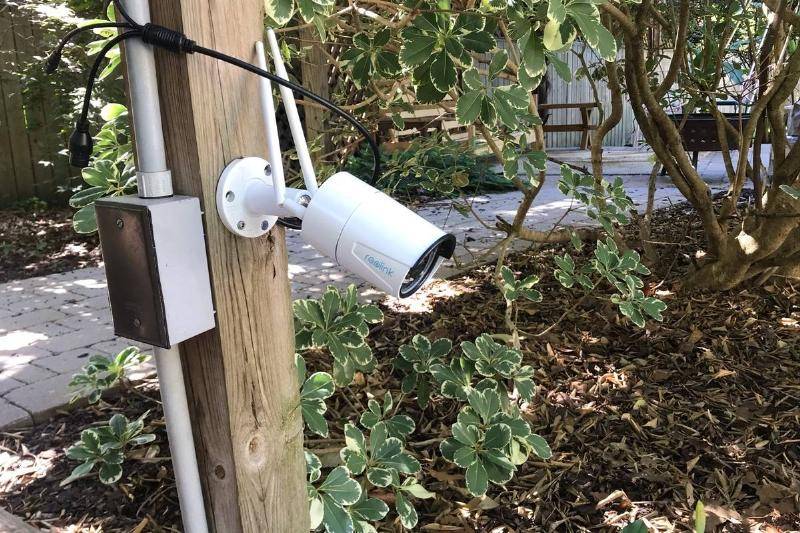
Subtly Spike Your Fence
Adding spikes to your fence is a discreet way to deter burglars from climbing over. Instead of using visible barbed wire, opt for spiked mats that blend seamlessly with your fence design.
Available in various colors and sizes, these mats are easy to install and also keep out animals like birds. This simple addition creates a physical barrier that intruders are unlikely to risk crossing.
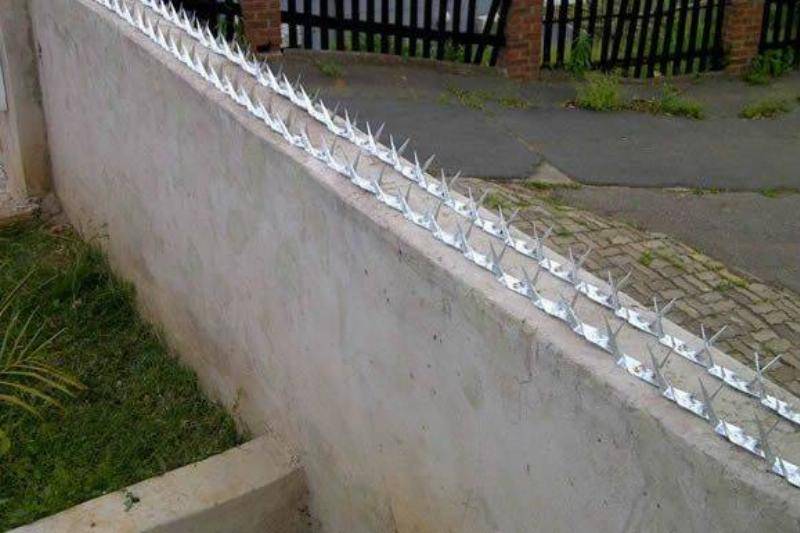
Store Valuable Items in Unassuming Places
Thieves often look for valuables in predictable spots like safes, drawers, or jewelry boxes. To outsmart them, hide your valuables in unconventional places such as empty food cans, socks, or fake electrical outlets.
These hiding spots are inexpensive to create and unlikely to be searched by burglars in a hurry. With a little creativity, you can make your prized possessions virtually invisible to intruders.
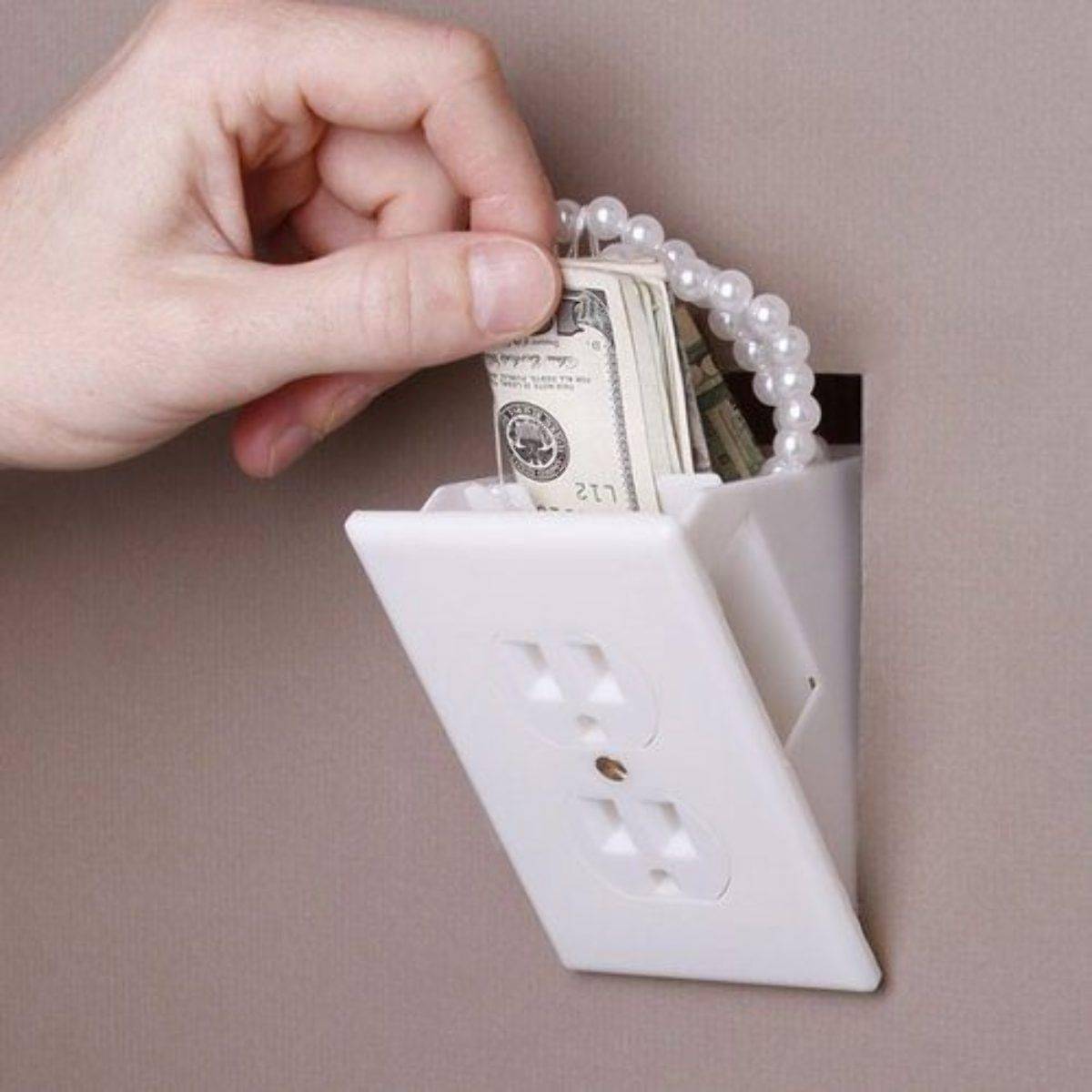
Hang a Mirror Near Your Front Door
Mirrors can serve as a subtle yet effective security measure. When people see their reflection, they become more self-aware and are less likely to engage in criminal behavior.
Placing a mirror near your front door or in other visible areas might deter potential burglars by making them feel watched. While not foolproof, this psychological trick can complement other security measures.
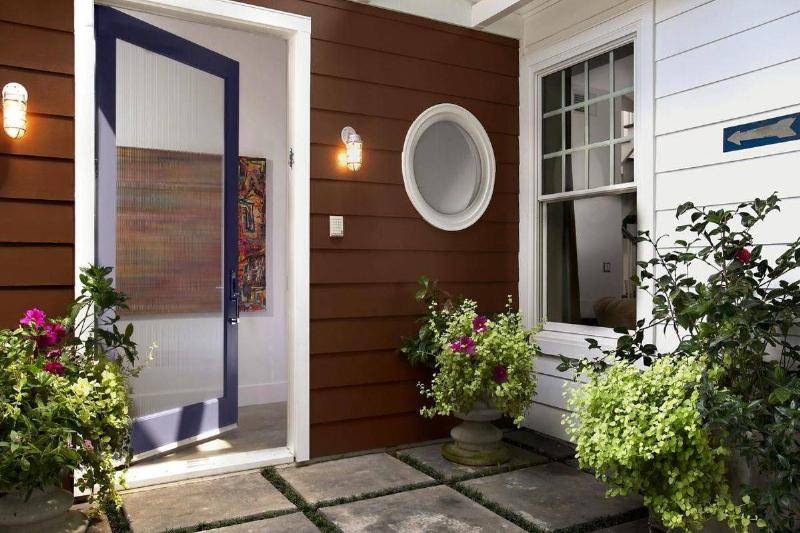
Turn Your Lights Off Before Leaving
Contrary to popular belief, leaving your lights on while you’re away might signal that nobody is home. Burglars are observant and can recognize patterns, such as lights remaining on during the day.
Instead, ask a neighbor to manage your lights or use timers to mimic normal activity. This approach creates the illusion of an occupied home, deterring potential intruders.
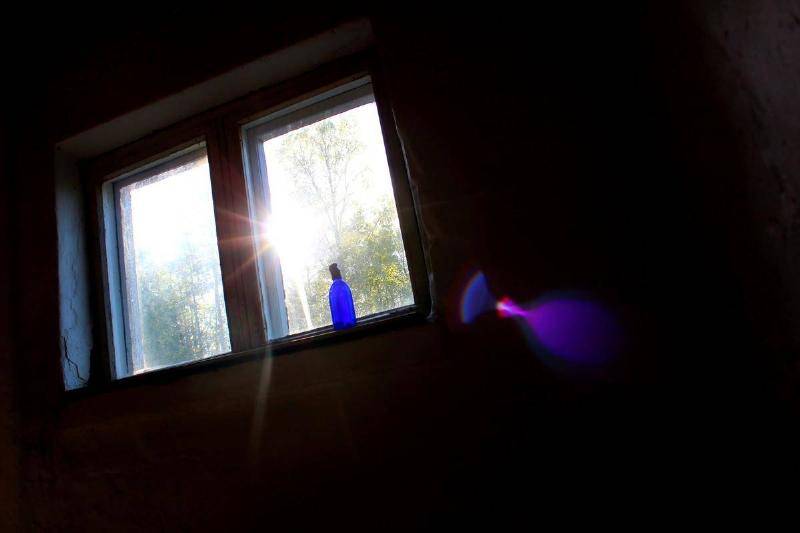
Put the Lights or TV on a Timer
Timers are an excellent way to make your home appear occupied when you’re away. Set lights to turn on and off at specific times, especially in the evening, to simulate your routine.
Some timers also work with TVs or radios, adding another layer of realism. These devices are affordable, starting at $20, and simple to install, making them a practical addition to your security setup.

Activate Security Between 10 A.M. and 3 P.M.
Many people believe burglaries primarily occur at night, but research shows they are most common between 10 a.m. and 3 p.m. when homes are typically unoccupied.
During these hours, ensure your security systems are active. If you don’t have an alarm, use measures like light timers or leaving the TV on to create the illusion that someone is home.
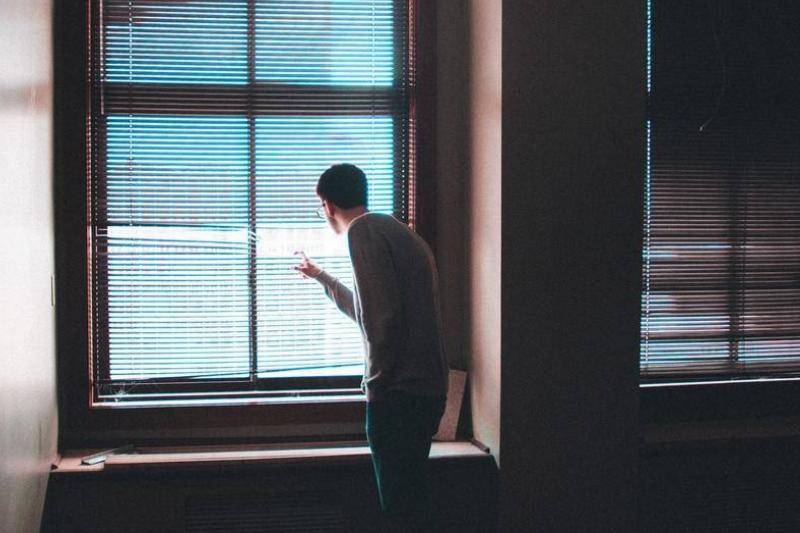
Brace the Front Door
A door brace can significantly strengthen your main entry point. These devices, often adjustable and easy to install, prevent the door from being forced open, even if the lock is compromised.
If you don’t want to buy a door brace, you can create one using a curtain rod, old pipe, or wooden stick. Placing it between the door and floor provides added security, especially at night.
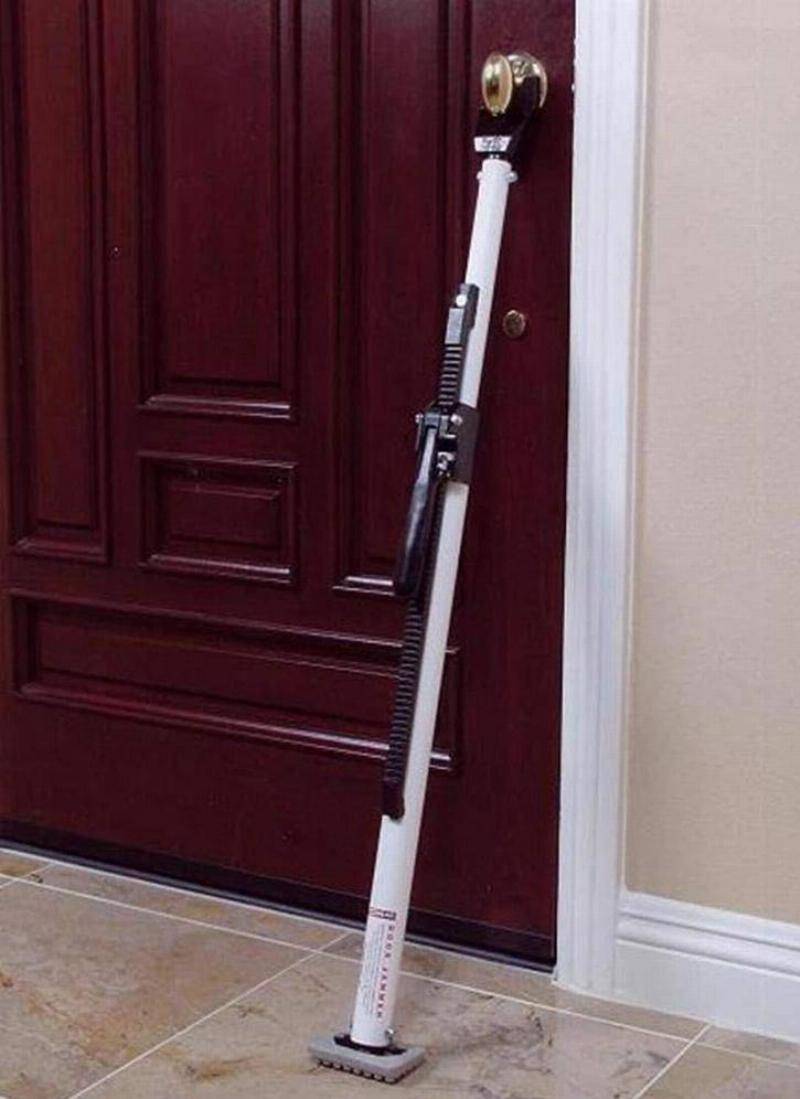
Protect Your Garage’s Emergency Release Cord
Garage doors are a common weak point for burglars, who can exploit the emergency release cord to gain entry. To prevent this, install a garage shield, a simple device that blocks access to the cord from the outside.
Garage shields are affordable and require no special tools to install. By addressing this vulnerability, you can keep your garage—and your home—secure.
